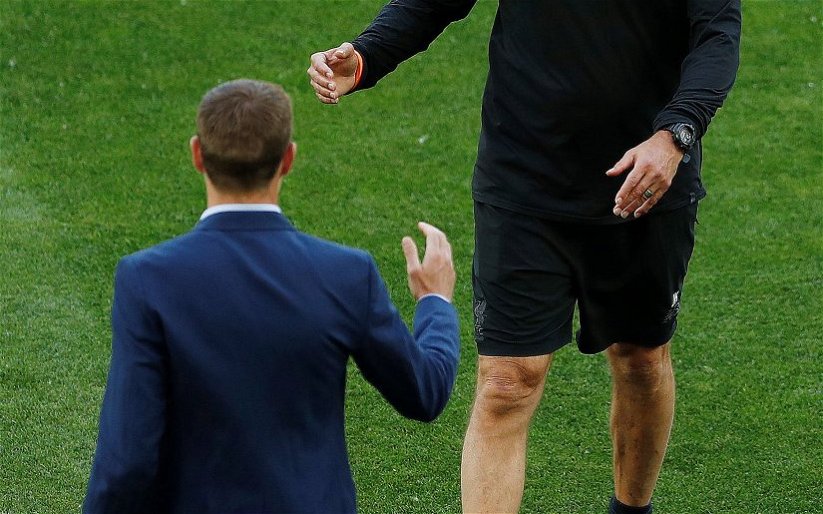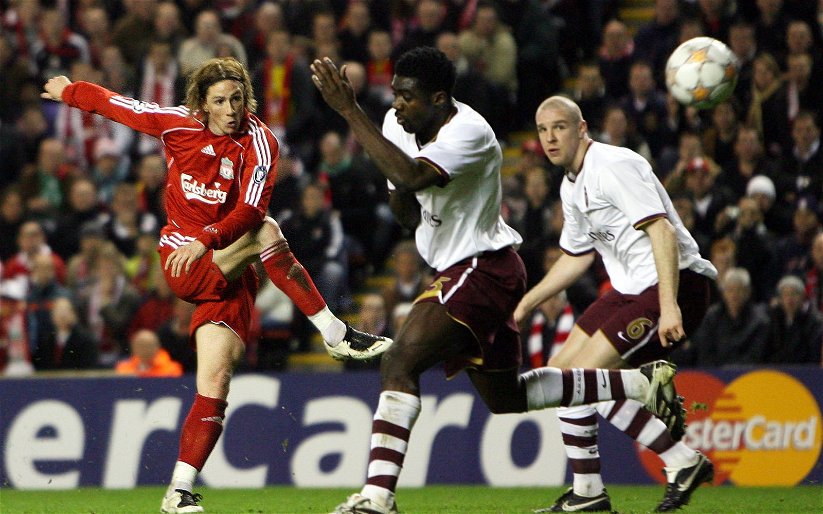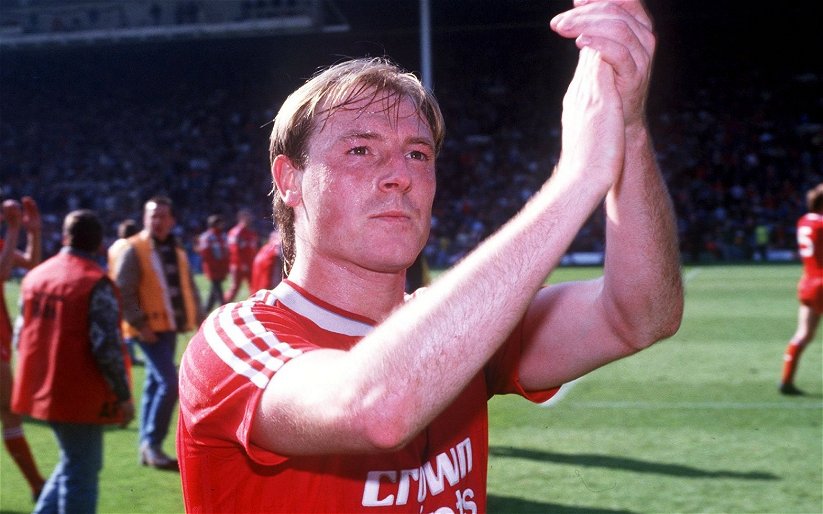 An Inauspicious Start
An Inauspicious Start
Ian Rush was born on the 20th October 1961. He grew up in a village called St Asaph in North Wales with five brothers and five sisters, and it was clear from an early age that Rush had a natural talent for football, and particularly for scoring goals. He started off his career at Chester, catching the eye very quickly of Liverpool scout Geoff Twentyman. He scored 14 goals in 34 appearances for the club, convincing both Twentyman and Liverpool manager Bob Paisley that he would be a useful addition to the squad at Anfield. The price of purchasing the young prodigy was to be a hefty one, as Rush was bought for £300,000 in April 1980, a record for any teenager in the world at the time. He started his first game for the club in a 1-1 draw against Ipswich on 13th December 1980, replacing the injured Kenny Dalglish. He proceeded to play only nine games during the season, not scoring once, although he did play in a winning League cup final team and was part of the squad that won the European Cup for the third time in 1981. Rush was however unhappy at not being a regular in the team, toiling in the reserves at the start of 81/82 season, Rush asked Paisley for a transfer. After a talk with Paisley, a new Rush appeared on the pitch.
Goal Machine
His first goal for the club finally came on 30 September 1981 during a European Cup first round second leg tie at Anfield against Oulun Palloseura. Liverpool were already 1-0 up from the first leg and the second game proved to be easy, with Liverpool winning 7-0. Rush scored in the 67th minute, three minutes after coming on for David Johnson. Rush now had an excellent chance to establish himself in the team with David Johnson injured. He scored a two against Exeter in the league cup and followed it with two more in the league against Leeds. He ended the season as the club’s top scorer, netting 30 times in just 49 appearances in all competitions. His most important of the season was his first goal at Wembley in the League Cup final against Tottenham, and he contributed 17 to help the Reds retake the League championship. Rush continued his hot scoring run the next season including four goals against arch rivals Everton, and was voted the league’s most promising player in the 1982-83 season.
What had been particularly important to Rush’s emergence, was his partnership with Kenny Dalglish. They understood each other’s capabilities well, and formed a frightening double act. Rush made excellent runs and had great anticipation, while Dalglish had great vision and passing abilities. The Welsh striker always made his move long before the opponent had realized and Kenny always picked out the front man with a brilliant pass. For that reason, Rush was nicknamed “the Ghost” for the way he ghosted in behind defenders. That season saw Liverpool win the double of the championship and the League cup for the second season in a row. Rush won the PFA young player of the year at the end of the season.
European Cup Winner
The 1983-84 season was probably Rush’s best season for Liverpool. He scored an unbelievable 47 goals in 65 games in all competitions (beating Roger Hunt’s previous 41 goals in a season for the club) and was awarded the European Golden Shoe. He was also rewarded with team titles and individual honours as Liverpool finished the season with a treble. They finished three points clear of Southampton in the League, defeated derby rivals Everton 1–0 in a replayed final of the League Cup and won their fourth European Cup by defeating AS Roma 4–2 on penalties with Rush scoring the third penalty. Rush was voted PFA Player of the Year and the Football Writers Footballer of the Year.
The 1984–85 season was a totally affair however as the Merseysiders had their first trophyless season in ten years. The only lasting memory from the season was the tragedy of the Heysel disaster at the end of the season. Liverpool had made it to their fifth European Cup final against Juventus but the 1-0 defeat was overshadowed by the deaths of 39 Juve fans before the game as rioting hooligans caused a retaining wall to collapse in the stadium. The game still went ahead but neither side’s minds were on the game, rather the tragedy that had befallen the fans before the match. English clubs were subsequently banned from Europe for the foreseeable future.
The next season was much better for the Reds as they achieved the first League and FA Cup double in the club’s history. They had beaten their city rivals to the title and now also had to play them in the FA Cup final to achieve their first double. They were 1-0 down to Everton at half time to a Gary Lineker goal, but they came out fighting for the second half, with Rush scoring two goals (the equalizer, and the crucial third) to complete a wonderful turnaround and seal a fantastic 3-1 victory. Rush took the acclaim by taking the man of the match award for the game.
Moving on
After much speculation about his future, Ian Rush told Liverpool fans before the start of the 1986-87 season that he was leaving the club and heading for Juventus at the end of the upcoming campaign. There was much debate about his departure, whether it was due to wages, the possibility of playing in Europe or a bid to heal the rifts of Heysel. Any fears he wouldn’t give a 100% for Liverpool in his last season were quickly quashed as he scored 20 goals in his first 20 games of the season. They did not win a trophy however as Everton took the league championship and they lost to Arsenal in the League Cup final. The following season he joined Juventus in a £3million deal but the move seemed like a mistake for the Welshman. He did score 14 goals during the season of which 8 were in the league, but injuries, illnesses, a fail to settle into the lifestyle, and Michel Platini’s decision to quit Juve all played a part in him departing Italy after only one season.
Coming Home
To much surprise, Rush rejoined Liverpool for £2.7m on 18 August 1988 – a record signing for an English club at the time. The fans were pleased at his return to the club but in his absence Rush had been replaced in his striking berth by John Aldridge, playing alongside fellow new signing Peter Beardsley. Aldridge was seen as too similar in style to play with Rush, and he started the season in front of Rush who had to be content with a place on the bench. The Irishman continued to score goals but as the season went on, Rush came into some form of his own. Rush came on as a sub during the 1989 FA Cup final against Everton and scored twice in a fantastic 3–2 win. The final had great significance because of the events of April that year. During the FA Cup semi-final between Liverpool and Nottingham Forest at Hillsborough, 96 Liverpool fans died after a crushing incident in one of the stands.
Rush was preferred to Aldridge in the starting line up for the start of 1989/90 season and this led to the Irish striker’s departure to Real Sociedad. Dalglish’s faith in Rush paid off however and he scored 26 goals, helping the Reds to another League title, Rush’s fifth and last. He scored the same amount of goals the following season but Dalglish’s resignation spoilt Liverpool’s title chances. Rush struggled for form and fitness for the next two seasons and during the 91/92 season, injuries restricted him to only 18 games and three league goals. He did manage to get himself ready for the 1992 FA Cup final against Sunderland and scored Liverpool’s second in a 2-0 win. It was his fifth goal in a FA Cup final. Things were however going down hill in the league as Liverpool only managed sixth, the first time since 1981 that they had not finished first or second. The 1992-93 was harder for Liverpool fans still as they found themselves in 15th place as late as March. Rush had been dropped from the first eleven, but he managed to find some form to score fourteen goals. He did however achieve a magnificent feat during the season on the 18th of October 1992 when he scored his 287th goal for the club in a 2-2 draw against Manchester United at Old Trafford, which broke Roger Hunt’s all time record for the club.
The subsequent season saw manager Graeme Souness give Rush the captaincy in the autumn of 1993, but his time at Liverpool was slowly coming to an end. He was mentoring a future great in his strike partner Robbie Fowler, and although he won his fifth League Cup medal in 1995, the arrival of record signing Stan Collymore that summer spelt the end for Rush. He did start the 95/96 season playing alongside Collymore but Fowler eventually took his place and in March 1996, it was announced that Rush would be leaving Anfield in June. His last game for the club came in a substitute appearance in the 1996 FA Cup Final against Manchester United. It was sad game to bow out on as Eric Cantona scored a late winner to give the Red Devils a 1–0 victory.


